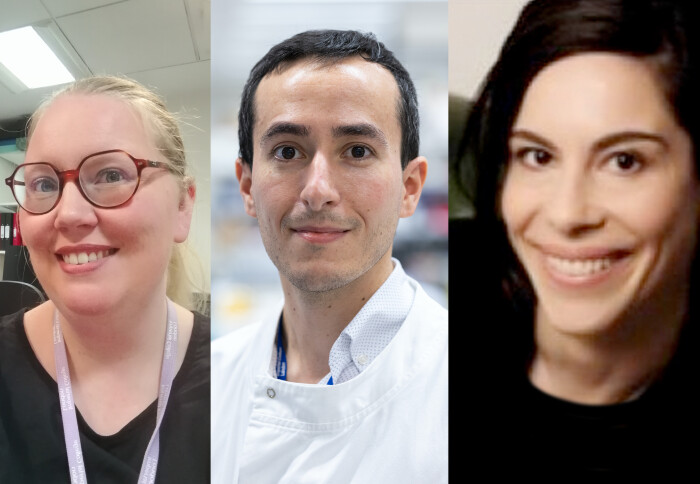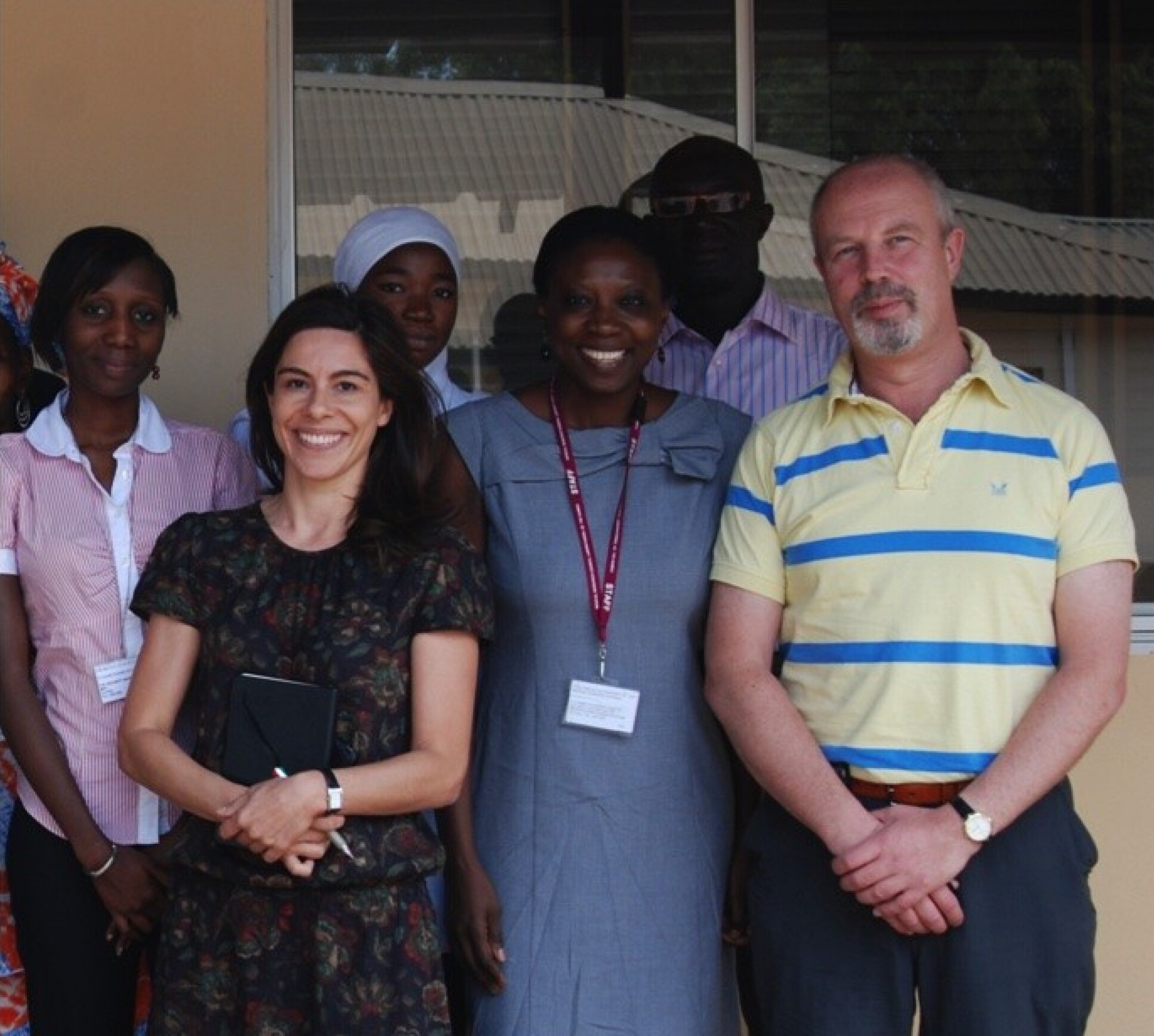Celebrating Imperial's French connections on Bastille Day
by Ruth Ntumba

Dr Justine Devulder, Dr Régis Joulia, Prof Maud Lemoine (L-R)
To mark Bastille Day, we interviewed some of our French academics to learn about their journeys moving abroad and working at Imperial.
France's National Day 'La Fête Nationale', known as Bastille Day in English, is the annual celebration of the storming of the Bastille in 1789, a pivotal moment of the French Revolution. To mark this day, we spoke to some of our Faculty of Medicine's French academics about their experiences of moving to London and working at Imperial.
What made you decide to move to London and Imperial?
Dr Justine Devulder (Research Associate at the National Heart and Lung Institute): I had started my PhD in Lille, France but knew that I wanted to ensure my postdoctoral experience provided me with an international experience. I also knew I wanted to continue working on lung disease, as at the time I was working on asthma. I started to do some research on where to go but still felt stuck. That was until I came to London for a weekend trip. I visited a lot of tourist areas and as I discovered the city, I also discovered Imperial College London. I returned home and did further research on The College and discovered they had the NHLI. It intrigued me because it not only gave me the opportunity to continue doing research in pulmonary work, but I was also not far from my family. I applied and it worked!
Dr Régis Joulia (BHF CRE Junior Research Fellow at the National Heart and Lung Institute): I moved to London in 2017 for a postdoctoral project and I was planning to stay for only two or three years. I loved the city instantly and when the BHF Centre at Imperial College offered me a fellowship, I decided to stay without hesitation.
Prof Maud Lemoine (Professor and Honorary Consultant in Hepatology): In 2011, by chance, I met Prof Mark Thursz who gave me the opportunity to join his team. I spent about two years and a half in The Gambia where I implemented a very ambitious research programme on liver diseases in West Africa. Then, in 2014, I moved to London. I hadn’t planned to move to London, but then I discovered a different culture—where I was given so many more opportunities than I’d have in the French system. I was extremely motivated but more importantly I felt really supported by Imperial and my department to develop my ambitions and create my own research group. I do still miss the French system from which I have learnt a lot.
I was initially going to spend a year or two as a lecturer at Imperial, but then I secured more funding to expand my research activties and really enjoyed the work environment and its management based on trust and creativity—especially as it’s much more diverse here. There are so many different nationalities represented in our department, it’s really nice.
What makes working at Imperial special?
Maud: In my experience, the UK really works to provide opportunities. I arrived in my mid-thirties, not trained in the English system at all, and it was difficult, especially in the clinical areas, (priorities and guidelines can be quite different from the French system). Also, It felt hard to express precisely my thoughts, and I was worried about how I came across, with my accent and background. But people were really nice—everyone in my department welcomed me in and felt really supported by our Head of Department, Prof Mark Thursz (picured below, right).

What’s your highlight or proudest achievement at the College so far?
Maud: I am proud to have been able to adjust to a system I really didn’t know, at a slighter older age. I’m proud to have been able to secure UK grants, in a new language, in a totally different system to what I knew in France. When I asked for help, so many people did, which I think makes Imperial a special place.
But, I am more proud to have been able to create and maintain a very diverse research group including people with different background and cultures, and more importantly I am happy to learn from them and to train more junior researchers from Africa, UK or elsewhere.
What are your favourite things about London?
Justine: There is so much to do in London! I love museums and castles so you can imagine the endless visits and walks I’ve already done! Coming from France (I’m sorry, but Paris is still the most beautiful city in the world), I would say that my favourite thing is how welcoming London and Londoners are. I’ve always felt welcomed, whether it be in a pub, park, or museum.
Why do you think there’s such a strong link between London and France?

Régis: Historically, there have always been strong links between London and France culturally and scientifically. Stereotypically, there has been this 'love-hate' relationship between the French and English, but we always spend our vacations in each other countries.
Justine: By celebrating the relationship between France and the UK, we can promote mutual understanding, strengthen our cultural ties, and contribute to a more interconnected and cooperative world. As neighbouring countries, France and UK have both been key actors in Europe during WW2, and many individuals have personal connections, and families across the Channel. I think we need to acknowledge our cultural exchanges and shared history, to maintain the ongoing collaboration and positive engagement between the two countries.
What would be your top recommendations for compatriots thinking of moving to London, especially if they’re thinking of studying or working at Imperial?
Maud: I would really encourage them to make a real effort to meet people, and stay in touch with them. You can learn so much from other people’s experiences, and that has helped me a lot. A beauty of being a foreigner is that you don’t initially fully understand the system, so you have to observe more and pay real attention. I would tell people to be prepared to find it difficult at times, but to just do it—it’s a great opportunity to open your mind.
Prof Lemoine has written a blog post further detailing her career as a clinician scientist. Learn more about her journey here.
Article text (excluding photos or graphics) © Imperial College London.
Photos and graphics subject to third party copyright used with permission or © Imperial College London.
Reporter
Ruth Ntumba
Faculty of Medicine Centre